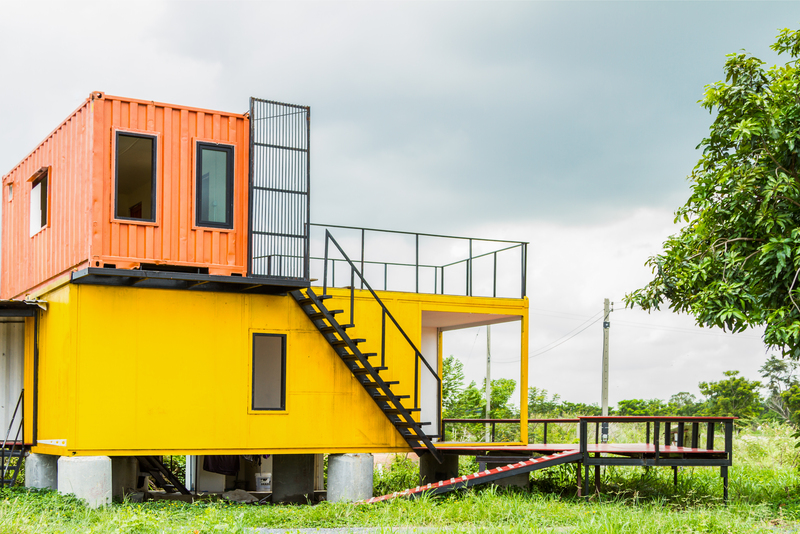Simple Hacks for Waste Reduction in Your Household
Reducing household waste is more than an environmental trend--it's a transformative lifestyle that saves money, benefits your community, and helps preserve the planet for future generations. By implementing simple hacks for waste reduction in your household, you can minimize your ecological footprint, conserve resources, and inspire those around you. In this comprehensive guide, we'll explore effective, easy-to-follow strategies for reducing waste in your home, covering everything from food scraps to plastics and more.
Why Prioritize Household Waste Reduction?
The global waste crisis has reached alarming levels, with millions of tons of garbage filling landfills annually, polluting our oceans, and emitting harmful greenhouse gases. Household waste makes up a significant portion of this problem. Taking simple steps toward household waste reduction not only protects the environment but also promotes a healthier, more sustainable lifestyle.
Environmental and Personal Benefits
- Conserves natural resources: Reducing waste limits the raw materials needed for new products.
- Cuts landfill usage and pollution: Less waste means fewer toxins leaching into the environment.
- Supports climate action: Lower waste output equates to reduced greenhouse gas emissions.
- Saves money: Buying less and reusing more leads to financial benefits.
- Promotes a cleaner home and neighborhood: Less clutter and garbage improve overall wellbeing.

1. Start with a Waste Audit
Before implementing any waste reduction hacks, it's crucial to understand what types and quantities of waste your household generates. A waste audit can offer invaluable insights.
How to Perform a Simple Waste Audit
- Collect all your household waste for a typical week.
- Sort waste into categories: food waste, recyclables, plastics, paper, electronics, clothing, and hazardous items.
- Analyze the largest waste contributors and identify easy areas for improvement.
- Set weekly goals for reducing particular types of waste.
Performing this audit can highlight patterns--such as excessive packaging from take-out meals or discarded single-use plastics--allowing you to prioritize which simple hacks for waste reduction in your household to implement first.
2. Adopt the 5Rs: Refuse, Reduce, Reuse, Recycle, and Rot
The classic waste hierarchy has evolved to include 5 essential Rs that guide sustainable living. By following the 5Rs, you can create long-term, positive change within your home.
Refuse: Say No to Waste
- Reject single-use items: Politely decline plastic straws, cutlery, and bags when shopping or dining out.
- Unsubscribe from junk mail: Register with services that block unwanted catalogs and flyers.
- Say "no" to freebies: Turn down products and samples you don't need, preventing them from becoming clutter.
Reduce: Minimize Unnecessary Consumption
- Buy in bulk: Purchase pantry staples in larger quantities to minimize packaging.
- Shop with a list: Planning ahead helps avoid impulse buys that often go to waste.
- Opt for quality: Choose durable, long-lasting products over disposable or low-quality items.
Reuse: Find New Purposes for Items
- Switch to washable cloth napkins, dish towels, and cleaning rags instead of disposables.
- Repurpose jars and containers: Use glass jars for storage or take lunch on-the-go in reusable boxes.
- Buy secondhand: Visit thrift stores for clothing, furniture, and electronics.
Recycle: Sort Responsibly
- Know your local recycling rules: Only place accepted items in recycling bins.
- Rinse containers to ensure they don't contaminate other recyclables.
- Recycle electronics and batteries through designated take-back programs.
Rot: Compost Organic Waste
- Start a compost bin: Collect food scraps, coffee grounds, and yard waste to create nutrient-rich compost.
- Use compost in gardens or community green spaces.
3. Minimize Food Waste with Smart Storage and Planning
Food waste is one of the primary contributors to household trash. According to the Food and Agriculture Organization (FAO), roughly one-third of food produced globally ends up wasted. By integrating simple food-waste reduction hacks into your household routine, you can save money and resources.
Effective Food Waste Reduction Tips
- Meal plan weekly and use a shopping list to prevent unnecessary purchases.
- Organize your refrigerator with the FIFO method (First In, First Out)--store older items at the front to use them first.
- Understand expiration dates: 'Best by' often indicates optimal freshness, not safety. Trust your senses.
- Freeze leftovers, herbs, and extra produce to extend their shelf life.
- Repurpose food scraps by making stocks or turning old fruit into smoothies and baked goods.
Making minor adjustments like these transforms your kitchen into a hub for waste minimization.
4. Reduce Single-Use Plastics at Home
Single-use plastics--from grocery bags to water bottles--make up a staggering amount of household waste. Cutting back on plastics is a powerful way to embrace waste reduction and support global sustainability efforts.
Practical Plastic Reduction Hacks
- Use reusable shopping bags, produce bags, and containers every time you shop.
- Invest in metal or glass water bottles and coffee cups to avoid disposable beverage containers.
- Avoid individually packaged snacks--opt for larger portions and portion them out at home.
- Buy bar soaps and shampoo instead of bottled versions to reduce bathroom plastic waste.
- Seek products packaged in glass, metal, or paper rather than plastic.
5. Harness the Power of Reusables
Transforming your household waste reduction routine is simple when you prioritize reusable options over disposable ones.
- Switch to a safety razor instead of disposable razors for shaving.
- Replace paper towels with washable cloths for cleaning.
- Use silicone lids or beeswax wraps instead of plastic wrap for food storage.
- Swap out single-use diapers for cloth alternatives to drastically reduce landfill contributions.
6. Practice Thoughtful Shopping and Conscious Consumption
Every purchase you make at the household level has a waste impact. Adopting mindful shopping habits is a cornerstone of any waste-reduction strategy.
Tips for Shopping Sustainably
- Choose products with minimal or no packaging and support local, zero-waste stores when possible.
- Opt for high-quality, longer-lasting products rather than frequently replacing cheap items.
- Decline unnecessary receipts, takeout utensils, and extra napkins.
- Bring your own containers for deli foods or restaurant takeout.
Tip: Borrow, rent, or share items that you only need occasionally rather than buying new. This applies to tools, party supplies, books, and more.
7. Engage the Whole Family in Waste Reduction
Household waste reduction works best when everyone participates. Transform simple hacks into fun family challenges to make a lasting impact!
Family-Friendly Waste Reduction Ideas
- Turn recycling or composting into a game--see who sorts the most correctly each week.
- Set up a home swap table for kids to trade toys, books, or clothes rather than discard them.
- Involve children in upcycling craft projects using household waste (e.g., bottle caps, cardboard).
- Plan a monthly "zero-waste" meal prepared only from existing pantry and fridge ingredients.
8. Donate and Share Instead of Discarding
Rather than throwing away usable items, pass them on to someone else. Donating helps reduce waste in your household while benefiting those in need.
- Donate clothing, toys, and household items to local shelters, charities, or thrift stores.
- List usable household goods online for free pickup via neighborhood sharing groups.
- Set up a "giveaway box" in the entryway for items you no longer need, making regular drop-offs easy.
9. Composting: Turn Waste into Valuable Resource
Composting is a powerful hack for household waste reduction. By turning food and yard waste into rich soil, you'll support healthy gardens while diverting organic material from landfills.
How to Start Composting at Home
- Choose your composting method: Backyard bin, worm bin (vermicomposting), or indoor Bokashi system.
- Add food scraps like fruit and vegetable peels, coffee grounds, and eggshells (avoid dairy, meat, and oily foods).
- Combine with yard waste--leaves, grass clippings, and small twigs.
- Keep the pile moist and aerate by turning regularly.
10. Repair, Upcycle, and DIY
Instead of tossing broken items, seek repair or creative repurposing solutions. This not only reduces your waste but also fosters self-reliance and creativity.
- Learn basic repair skills like sewing, mending, or appliance fixes.
- Transform old clothes or fabrics into cleaning rags, bags, or quilts.
- Upcycle glass jars as candle holders or storage containers.
- Attend community repair cafes or skill-share workshops to learn from others.
11. Switch to Digital Alternatives Where Possible
Reducing paper waste is another simple way to minimize trash at home:
- Switch to electronic bills, statements, and subscriptions.
- Read books, newspapers, and magazines online or borrow from the library.
- Use digital note apps instead of sticky notes or notepads.

12. Dispose of Hazardous Waste Responsibly
Household waste isn't only about food and packaging. Properly dealing with electronics, batteries, paints, and chemicals is essential for safe waste management.
- Take e-waste and batteries to certified drop-off points.
- Participate in local hazardous waste collection events.
- Never pour chemicals down the drain or into the trash.
Embrace a Greener Future: Start Your Waste Reduction Journey Today
Waste reduction at home begins with just a few simple daily changes. By adopting these easy hacks for minimizing waste in your household, you can make a meaningful difference for both your family and the planet. Remember, every small action adds up. Whether you're reducing plastic, composting, repairing, or donating, your efforts matter.
Encourage others to join you, share your progress, and transform your home into a model of sustainable living. If we all do our part, we can create a cleaner, healthier world--one household at a time.
Summary: Top Waste Reduction Tips for Your Household
- Perform a waste audit to pinpoint opportunities for improvement.
- Implement the 5Rs for comprehensive waste reduction.
- Organize, plan, and store food wisely to prevent waste.
- Swap disposable products for reusables at every opportunity.
- Engage the whole household in fun, waste-reducing activities.
- Repair, upcycle, and donate instead of discarding items.
Take action today: Pick one hack from this list and integrate it into your daily routine. Gradually, you'll notice a substantial decrease in your household garbage--and a big boost in satisfaction.
Ready to make a difference? Start with these simple household waste reduction hacks and watch your positive impact multiply!